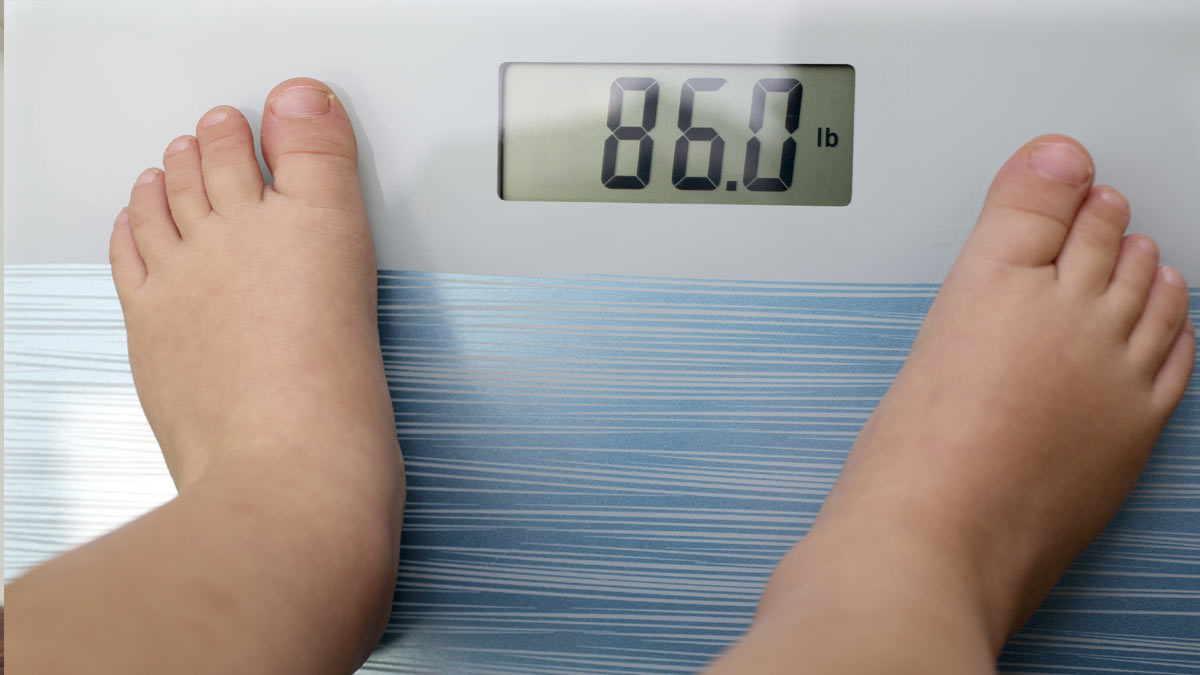For the past two years, we have watched our social lives wane and our travel plans take a dive, and some of us have even dealt with a diminished work schedule. Unfortunately, something that has not decreased during the pandemic is our collective weight.
The truth is, we can’t blame it all on COVID-19. Sure, some gyms closed for a while, but they are back open now. And during the quarantine, perhaps you munched on one too many potato chips, but we’re no longer confined to our homes. So what excuses do we still have?
Adults aren’t the only group that has put on the weight recently. Doctors also have seen an uptick in childhood obesity since the coronavirus reared its ugly head. Children gained weight during the pandemic for a variety of reasons. Perhaps it was online learning, more game time, less time competing in team sports or depression – or even the possibility that their parents didn’t have enough money to buy them healthy food.
There’s also the fact that obesity in children was already on the rise before the arrival of COVID-19. In fact, the CDC reported in September that children who were a healthy weight before the pandemic were gaining an average of 3.4 pounds a year, a number that rose to 5.4 pounds during the pandemic. It was also reported that for kids who were moderately obese, expected weight gain rose from 6.5 pounds a year to 12 pounds after the pandemic began.
It is safe to say that obesity in children was already an issue, and the pandemic certainly didn’t help the matter.
But for doctors like Christine San Giovanni, M.D., assistant professor in the Department of Pediatrics at the Medical University of South Carolina, childhood obesity is complicated.
“So much plays into it,” she said. “Not enough physical activity and being in front of screens all day doesn’t help. There is also the fact that lives are just so busy, and people don’t really take the time to exercise.”
Dr. San Giovanni also compared life in general now to how things used to be for our grandparents.
“There is more unhealthy food now days and easier access to it,” she explained. “And people used to walk and ride bikes more to get around than they do now.”
She said she suggests to parents that children who are overweight combine exercise with healthy eating to improve the health of everyone in the family: “Don’t make them do this alone. It is more successful for someone struggling with weight to make healthy decisions together with another family member.”
Plus, she added, “It isn’t fair to make them give up sweets if you aren’t going to. They shouldn’t be the only one making these changes. That can lead to long-term mental health issues.”
Taking control of your child’s weight issues will benefit the child in the long-term since elevated weight in children can lead to Type 2 diabetes, high blood pressure, high cholesterol, fatty liver disease, sleep apnea, orthopedic ailments and depression.
She said she has patients who were dealing with mental health issues that often led to the weight gain – and now that they are overweight, their depression and anxiety are worse.
The best solution, according to Dr. San Giovanni, is to “try to make small steps in making healthy changes – perhaps start with finding an activity that you enjoy doing.” They need to participate in a sport they enjoy that doesn’t feel like a chore and consume healthier food and snacks in moderation.
Dr. San Giovanni said that kids should try working out at a gym or with online videos at home. They can also get outside and go for walks, runs or bike rides. If there is a sport they love to play, they should find a local league and get involved.
“There truly is something for everyone,” Dr. San Giovanni said.
She mentioned that there are not many options approved by the FDA as far as medications go for weight loss in children. Also, although bariatric surgery has been approved for kids as young as 13 in South Carolina, Dr. San Giovanni said she does not recommend it as the first option.
“We like to try everything we can before recommending surgery,” she said.
Probably the biggest takeaway that she wants parents of overweight children to know is that they should never shame their children.
“Don’t treat them different because of their weight,” she said. “Help them figure out how to make changes. Don’t single them out as the only one who can’t eat dessert or a have a treat.”
She warned that treating children negatively because of their weight can lead to eating disorders or worse because kids regress due to “feeling weight stigma, shame and guilt.”
“You won’t be able to shame them into being more fit. That’s not helpful. Be positive. Get through it with them because, in the end, we are all different and no one is perfect,” she concluded.
For more information on the work of Dr. San Giovanni, visit web.musc.edu or call 843-876-0327.
By Theresa Stratford







